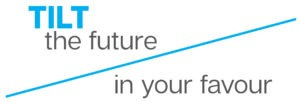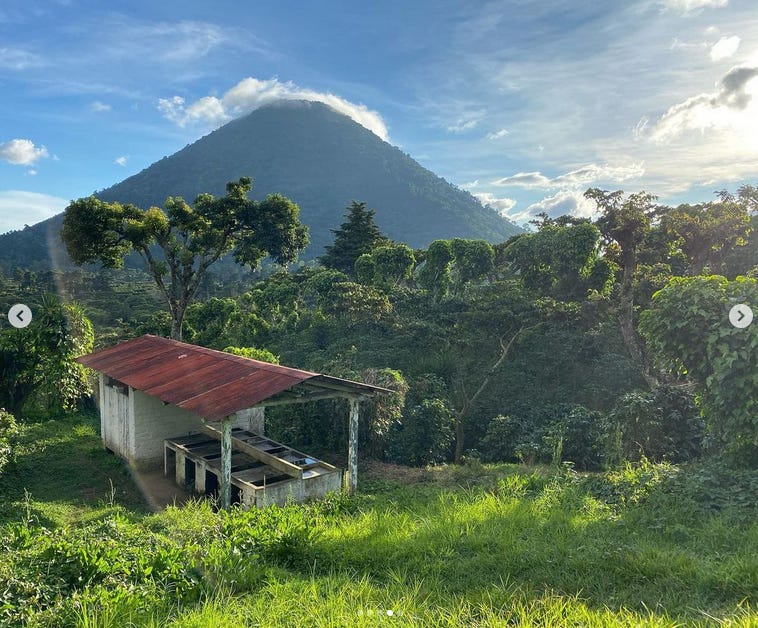Niche: One of a handful
E37: Developing a deep body of knowledge, Meet Sam Knowlton
Greetings from London, dear Tilters
Niche: A specialized segment of the market for a particular kind of product or service.
A primary fear surrounding the Future of Work is that there will be fewer jobs available. To which I have repeatedly responded: find an outstanding problem and create a deep body of knowledge as you work to resolve it. Do that and you could control your own career shelf-life.
The Tilt member profile this week is Sam Knowlton. His career path is a road map for how we can make an impact and a difference. His career is agronomy - one that I did not know existed. He is one of a handful of people on Earth who improves the coffee plantation yield by focusing on the health of the soil, moving away from artificial fertilizers.
Why do I share stories such as these? As young adults, parents, educators, and advisors, we may not be aware of the circuitous paths to solving a problem. And the opportunities those then create.
“See a problem. Fix a problem.” There are more jobs available than we can imagine.
Karena
Build a body of knowledge
Sam and I have been trading essays since March 2022. He reads and edits my newsletter content on Climate, Parenting, and the Future of Work. And I weigh in on his essays. Sam is soil. As I struggle to add value to his essays, it comes through in asking clarifying questions, dotting i’s and crossing t’s. One time I came across a phrase that blew my mind.
Nitrous oxide has an atmospheric warming potential 265 times greater than carbon dioxide.
“Tell me more,” I said as he described the alternate ways his organization works to naturally feed nitrogen back into the soil to produce a flavourful coffee crop. I am concerned that in my love of three cups of joe a day I might inadvertently be contributing to climate change. Coffee plantations currently use a tremendous amount of artificial nitrogen to create their crops. “How did you learn about all this?” And that is when I discovered how Sam’s curiosity in permaculture opened the door to a career as an agronomist.
The path to learn, connect dots and gather contacts is intuitive when we are fueled by a passion. The work is no less difficult, but we embrace it because we are on a mission.
Find an outstanding problem and create a deep body of knowledge as we work to resolve it. Do that and we can create our own career shelf-life. We build a deeper body of knowledge on the way to making a difference. We lean into all the related tasks and do whatever is needed - project plan, sharpen knives, plunge toilets - just as a school principal does everything except teach in their quest to provide their students with an optimal education.
I recommend teens discuss the 17 UN sustainable development goals as a starting point to discover the areas of life that either attract them, or where they are driven to enforce change.
For Sam, the UN sustainability goals that hold his interest are
“So how many people in the world do what you do? 100?”, I asked. “Probably fewer - maybe a handful.” Sam replied. “Wow!” I thought, “in a world of 7.8 billion people to be one of only a handful with this skill and knowledge.” This is what gives me so much hope for the future of mankind - knowing that good, motivated people like Sam exist in the world.
See a problem. Solve a problem. Can you make use of this philosophy somewhere?
Meet a member: Sam Knowlton
As a teen, Sam expected to be an athlete. Maybe baseball or basketball. Yet here he is, one of a handful of agronomists in the world working with coffee. How did that happen? “Did you grow up on a farm?” I queried. Turns out that he had not - though he recalls a childhood passion for watering plants and wanting to see things grow.
At present, Sam works closely with coffee farmers to move back towards organic fertilization practices. In particular, he corrects the balance of minerals to the soil to naturally favour a bountiful coffee crop. One way is to plant shade throwing trees that also restore the nitrogen balance in the soil. (My interpretation - he flavour the soil!)
Soil is the leverage point
Why soil? “The heart of agriculture is effective stewardship. I realized that soil was the leverage point in all these conversations. Through the soil, we can be proactive, pragmatic in the way we steer an ecosystem”. I heard the words “HOPE” and ownership and action. He is engaging in the climate fight in a way that makes a difference.
He introduced me to the phrase “permaculture” which focuses on the positive ways we can shape the ecosystem of soil, crop, man, meaning of life.
Journey of learning
Sam constantly faces questions from others on how he developed his expertise. He didn’t go to college to study soil - he was studying ecology. He did not grow up on a farm. Instead, he followed his knows (nose .. is my English punnery showing?) digging deeper into this passion to solve the problem. As an act of paying forward to all those who are curious about agronomy he shares the books that influenced him, the certifications he has earned, the experiential journey of reforesting parts of Ometepe in Nicaragua on his website. In all this, I hear his journey of learning. Or, as I call it, developing a deep body of knowledge. That learning process is so much easier today as websites, newsletters and podcasts become available to share the wealth of information that has been gathered.
Want to learn more?
Are you curious about his journey of learning, how to create a body of knowledge, or about agronomy? Come talk to me as I have a full hour interview. Or reach out directly to Sam.
You can sign up for his newsletter Confluence, checkout his visually stunning instagram account @soilsymbiotics for his business SoilSymbiotics that helps grow everything from wine grapes to rice, and the essay “Coffee’s Nitrogen Dilemma” on his website.
PS. I’m lobbying hard for him to change the title of his newsletter from “Confluence” (great title) to “What Knowlton knows” … Whaddya think?
What are you enjoying in these profiles?







I learned about soil health when I was obsessed with Biodynamics more than a decade ago. It was sad to hear that all those chemical fertilisers that the government pushed to farmers in Indonesia in the 80s has actually killed the soil. Now, the only fertiliser I use in my container garden is from my beloved worm farm :) We should lobby for the name change in Sam's newsletter!
We need so many more like Sam! Great post, thanks Karena.